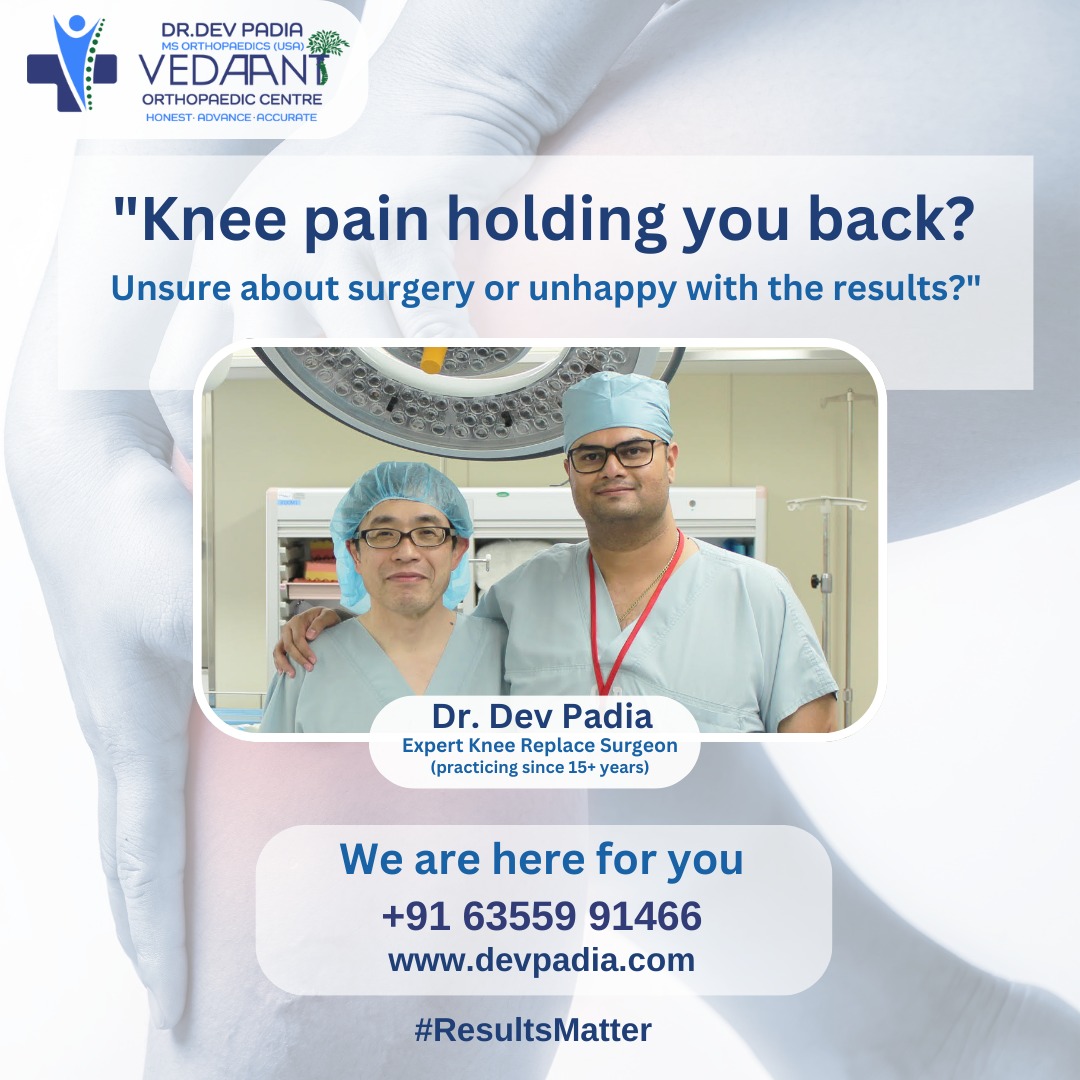Knee Replacement Surgeon in Surat
Vedaant Orthopedic hospital is the best knee replacement surgeon in India. Knee replacement surgery is a technique that involves removing diseased or damaged bone and cartilage from a knee joint and replacing it with an artificial joint composed of metal, polymers, or high-grade plastic elements.
It's a simple, pain-relieving surgery that can help you feel better, move better, and regain function in severely damaged knee joints. Dr. Dev Padia, the best orthopedic doctor will do an excellent job at the surgery and will help you overcome revision knee replacement surgery in Surat, Gujarat.
There are two types of common knee replacement surgery:
- Total knee replacement surgery
- Partial knee replacement surgery
The majority of knee replacement surgeries, known as total knee replacements, replace the whole knee joint. However, some people choose to get a partial knee replacement.
To comprehend the distinction, we must first comprehend the three compartments of the knee:
- In the middle (Inside)
- the lateral (Outside)
- Anterior/Patellofemoral (Under the kneecap)
A total knee replacement replaces all three portions of the knee, whereas a partial knee replacement just replaces one. Only young adults with complaints in only one knee region usually choose a partial knee replacement.
At Vedaant Orthopedic hospital, an experienced team of orthopedic surgeons will assist in determining the best option based on the state of the knee and the patient's overall health.
Knee replacement surgery is recommended for people who have one of the following conditions:
- A knee injury or arthritis that has severely compromised the joint's mating surfaces.
- Swelling and inflammation that persists despite rest and medication. If the knee is malformed, such as not being properly curved or seeming bloated.
- Pain and stiffness make it difficult to perform daily tasks such as getting in and out of the car or going up and down the stairs.
Following the patient's and surgeon's decision to proceed with knee replacement surgery, the following may be required:
- Tests on the blood
- A physical examination is performed to determine that the patient is fit for surgery.
- A dental exam can help lower the risk of infection after surgery.
- To guarantee that the patient's heart is strong enough for surgery, an ECG (Electrocardiogram) is performed.
The patient will be given an anesthetic on the day of surgery to prevent pain during the procedure. It will either be a general or a regional anesthetic. The anesthesia team will determine which anesthetic is best for the patient.
Knee replacement surgery takes about one hour to two hours. The surgical team will do the following during the procedure:
- Make a cut in the knee area.
- Damaged bone and cartilage should be removed.
- Install a knee implant and make sure it's in the right place.
- Use cement to hold the implant in place, or don't use cement at all.
- Insert a piece of polyethylene between the implant's metal pieces to produce a smooth, gliding surface.
- Close the wound or cut.

